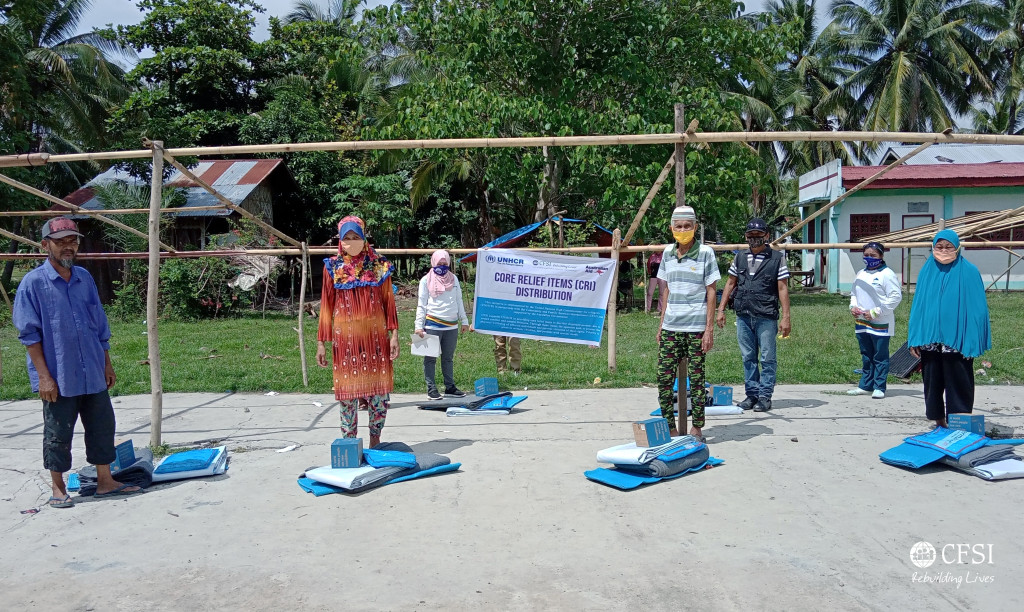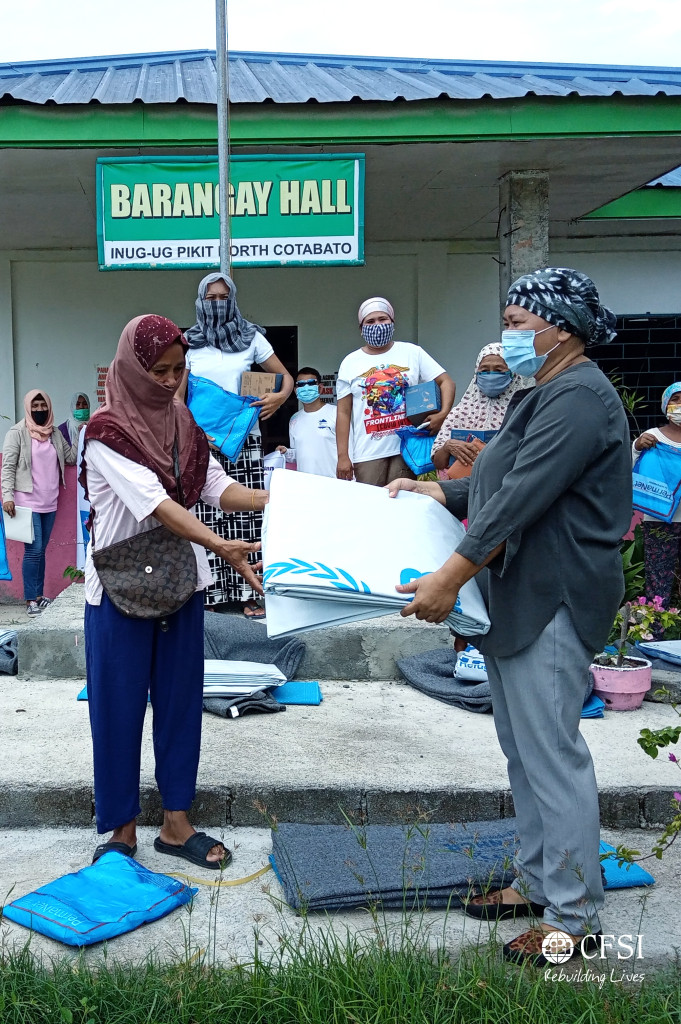PIKIT, NORTH COTABATO, PHILIPPINES – Community and Family Services International (CFSI) aided the United Nations High Commissioner for Refugees (UNHCR) in distributing Core Relief Items (CRIs) to displaced Alternative Learning System (ALS) learners on 24 June. The learners are survivors of a recent armed conflict in the municipality.

Internally Displaced Persons (IDPs) received core relief items from CFSI and UNHCR after fleeing their homes in due to armed conflict in several barangays of Pikit, North Cotabato.
Make-shift shelters were built in five (5) evacuation centers in Barangay Inug-ug, which served as the host barangay for the evacuees from nearby affected areas, including Barangay Rajamuda and Talitay. Some of these shelters are not waterproof, which made it more difficult for several displaced families when it rains.
A set of CRIs composed of tarpaulin to cover-up temporary tents, blanket, sleeping mat, mosquito net, and portable solar lamp were provided to some 22 ALS learners, most of whom were elderlies.
The distribution effort was made after a report received from the ALS instructional manager assigned in the area that several learners and their families were greatly affected with the current tension between members of an armed group. Nine (9) of these families totally lost their homes and were torched to nothing.
Barangay Inug-ug Chairperson Bai Arlene Maguid-Matalam hopes to receive more support in terms of food and shelter for the evacuees as the rainy season begins. She also expressed her gratitude for the relief assistance.

Barangay Inug-ug official (right) hands over core relief items to one of the internally displaced persons (left) who took refuge in the evacuation center.
The affected ALS learners are beneficiaries of CFSI’s Mindanao Trust Fund-Reconstruction and Development Project (MTF-RDP/2), which has an education component that aims to make alternative education accessible in conflict-affected areas in Mindanao.
The main goal of MTF-RDP/2 is to deliver community development assistance in the six previously acknowledged camps of the MILF to promote inclusion and peace. Barangay Inug-ug is one of the project’s service sites as it is part of Camp Rajamuda, one of the previously acknowledged MILF camps.
Further, the distribution of CRIs is part of CFSI’s Mindanao Protection Project (MPP) that aims to deliver assistance to Internally Displaced Persons (IDPs). The MPP is implemented in partnership with the UNHCR covering the areas of Central, Northern, and Western Mindanao, Philippines. Both actors are working closely with key stakeholders and local government units within and outside the Bangsamoro Autonomous Region of Muslim Mindanao (BARMM) to ensure the centrality of protection in all humanitarian responses. #

